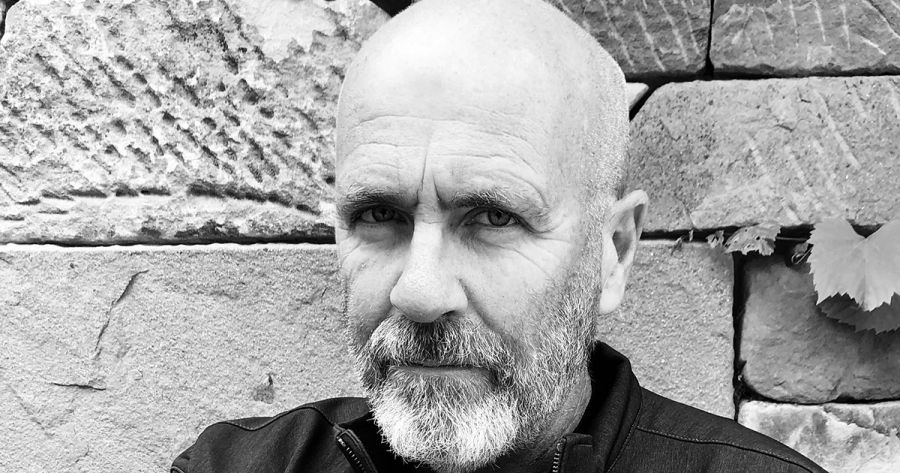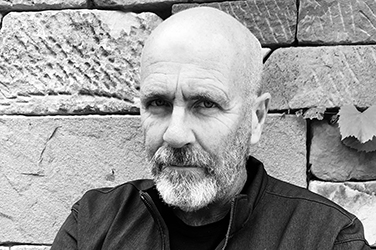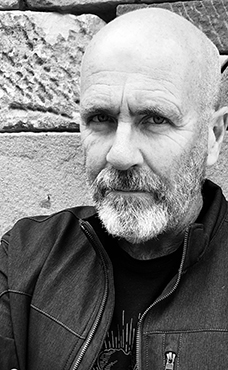
- Free Article: No
- Contents Category: Commentary
- Custom Article Title: Soul shifts
- Review Article: Yes
- Article Title: Soul shifts
- Article Subtitle: Reflections on Richard Flanagan’s Question 7
- Online Only: No
- Custom Highlight Text:
Thirty years ago, wanting to probe deeper into the question of what it meant to make home in Tasmania, I enrolled to do my honours year at the University of Tasmania. During a discussion with the secretary of the History Department about my partially formed dissertation ideas, she urged me to read a thesis by a recent graduate whose work had greatly impressed her: one Richard Flanagan. When I read the thesis and the book that came out of it, the result can best be described as a soul shift. It was not so much the information I gained but that Flanagan’s approach to Tasmania’s past released an imaginative flow in my own research, allowing it to slowly metamorphose over fifteen years into my first book, Van Diemen’s Land. I share this anecdote, not just to highlight what was lost when universities sacked most of their administrative staff, but to show how seriously Richard Flanagan has always taken history.
- Featured Image (400px * 250px):

- Alt Tag (Featured Image): James Boyce on Richard Flanagan’s 'Question 7'
In Catriona Menzies-Pike’s review of Flanagan’s new book, it is suggested that Flanagan’s ‘self-mythologisation’ has been on a ‘scale that brings Question 7 right up to the edge of self-parody’ (ABR, November 2023). What has been missed is that to the extent this is true, it is also the point. Flanagan is not suggesting that the love of Rebecca West and H.G. Wells, or the boisterous activities of ‘Martians’ who invented the atomic bomb, invaded Van Diemen’s Land, and still run Oxford, are central to his story in a literal sense. This is not conventional memoir trying to present a coherent narrative of a human life. If it was, Flanagan’s family and closest friends, who barely rate a mention, would surely be the book’s fiercest critics. Tasmanians who primarily know the man as a defender of the downtrodden won’t find any of his heroic exploits recorded here. As Menzies-Pike points out, there are no contemporary writers, Indigenous or non-Indigenous, who make the cut. The man who recently wrote in the The Monthly at eloquent length on the importance of the referendum, is silent on the Voice, as on so much else. This is clearly not a life story, an ‘influencer’ review, or a reflection on the state of the nation. The absences are so stark in the context of Flanagan’s broader life and writing that we can assume they are meant to be obvious. The absence of contemporary voices does not leave the work ‘estranged from the present’, but provides space for the past to be heard.
The presence of Aboriginal people runs loudly through the text, as does that of fallen prisoners on the death railway, crawlers still clinging to their convict chains on the gentry estates, and the dying trees of Gondwana as increasingly intense fires complete the work of the chainsaw. Flanagan knows a lot about the war fought by the Palawa in the defence of their home and about their epic survival in its aftermath. He is also well read on the freedom former convicts found in the bush, away from the cruel surveillance of magistrates and masters. He is right that there is not a single ‘settler history’, and it is wrong to assert that Question 7 ‘implies equivalences’ to these different forms of suffering. Has our collective ethical compass sunk so low that an author must explicitly spell out that a genocidal slaughter is morally worse than a chain gang?
The living past presented in Question 7 is aeons away from the populist idea that ‘history repeats, sure’. I am not sure what point is intended by the awful (and misleading) summation of the tragedy unfolding in Palestine as ‘Hamas invaded Israel. Israel retaliates’, but such a linear perspective on the past has nothing to do with Flanagan’s wrestle with his wounded inheritance. Question 7 subverts superficial readings of the much-abused historical circle by entangling it in love. Here is no ‘chain reaction of violence’ delivering us to ‘the wreckage of the present’. Think rather of Flanagan’s father, slave labourer in Burma and Japan, slowly turning compost in his suburban backyard.
Perhaps ‘maddening’ aphorisms such as ‘Such is life’ are ‘summative cliché and glib sentimentality’, but is Flanagan suggesting they offer ‘profound insights’ or that, precisely because they say nothing, they occasionally come close to saying everything? He might even be open to adding the reviewer’s ‘Just Connect’ to his list. That seems a loving mantra for any human being.
I read Question 7 in need of help. After working for many years on a book which returns to the colonial history where my research began, I made it to my concluding chapter, ‘Echoes to the Present’, only to become as becalmed as I was in the university corridors all those years ago. As for so many of us, the referendum debate has made it difficult to know what to say. How could it be that so many Australians accepted the fantasy that the pain of the past can be quarantined from the present? On waking to my first morning as a Question 7 graduate, I found myself asking whether our paralysis is in part because, in Flanagan’s terms, we remain Martians who inflict harm on others while remaining immutable ourselves. What if respectful listening to First Nations people and documenting what the invasion did to them are not sufficient? What if we have our own work to do?
The wonder of Question 7 is that it gives words to what we usually only sense in silence. It is to be expected that some will find parts of it too mystical for their liking. There is no shame in putting these sections aside, perhaps to be read again should you find yourself metaphorically wedged in a rapid, nose down in the river and surviving within a tiny air pocket, something Flanagan experienced as a young man. But in the interim, remember that during the ‘autumn of things’ it can be a dangerous conceit to pour scorn on incomprehensible prayer.



Comments powered by CComment